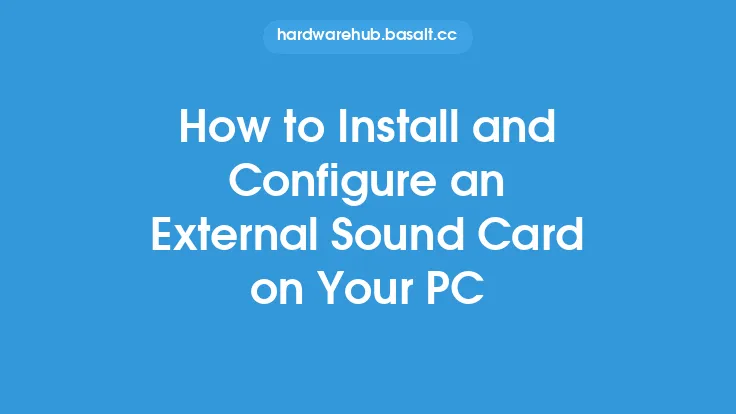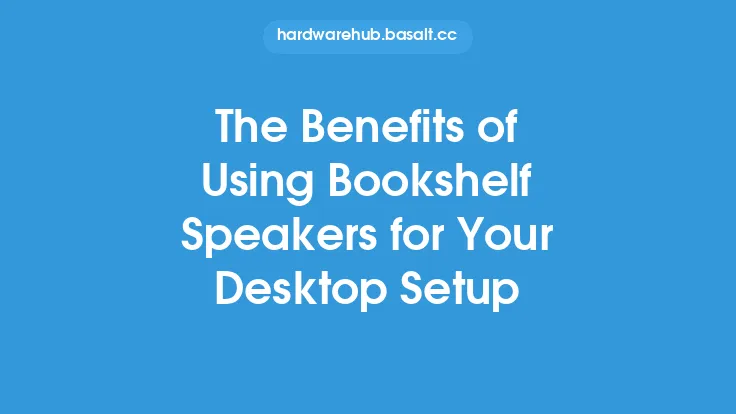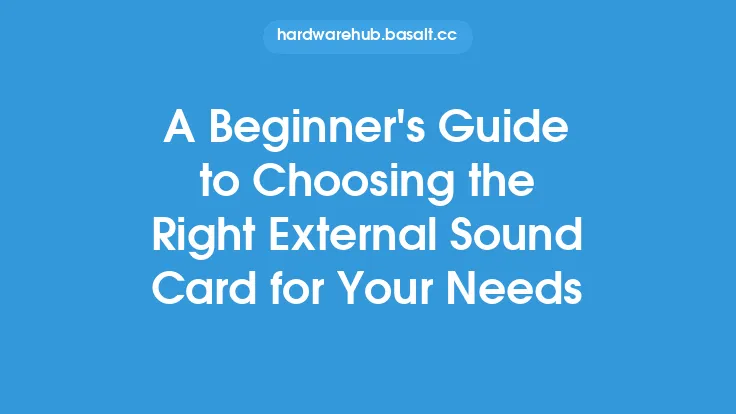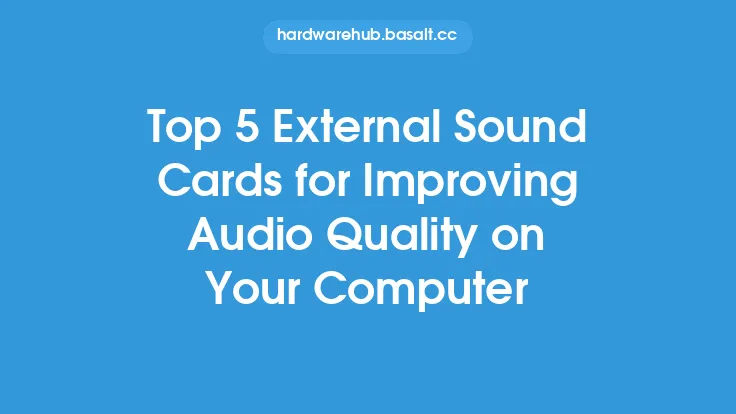When it comes to music production, having high-quality audio equipment is essential for creating professional-sounding tracks. One often overlooked component is the sound card, which plays a crucial role in capturing, processing, and playing back audio signals. While many computers come with onboard sound cards, these can be limited in their capabilities and may not provide the level of quality and flexibility that music producers need. This is where external sound cards come in, offering a range of benefits that can take music production to the next level.
Key Benefits of External Sound Cards
External sound cards offer several key benefits that make them an attractive option for music producers. Firstly, they provide higher quality audio conversion, with more accurate and detailed sound reproduction. This is because external sound cards typically use higher-quality digital-to-analog converters (DACs) and analog-to-digital converters (ADCs) than onboard sound cards, which can result in a more nuanced and engaging sound. Additionally, external sound cards often have more extensive connectivity options, including multiple analog and digital inputs and outputs, MIDI interfaces, and headphone amplifiers. This makes it easier to connect a variety of audio equipment, such as microphones, instruments, and monitors, and to configure complex audio setups.
Improved Audio Quality and Reduced Noise
One of the primary advantages of external sound cards is their ability to improve audio quality and reduce noise. Onboard sound cards can be prone to electromagnetic interference (EMI) and radio-frequency interference (RFI), which can result in a noisy or distorted sound. External sound cards, on the other hand, are typically shielded and isolated from the computer's electronics, which reduces the risk of interference and results in a cleaner sound. Furthermore, external sound cards often have built-in noise reduction and signal processing capabilities, such as phantom power, gain staging, and EQ, which can help to optimize audio signals and minimize noise.
Increased Connectivity and Flexibility
External sound cards also offer increased connectivity and flexibility, making it easier to configure complex audio setups and connect a variety of equipment. Many external sound cards have multiple analog and digital inputs and outputs, which allows music producers to connect multiple microphones, instruments, and monitors, and to route audio signals in a variety of ways. Additionally, external sound cards often have MIDI interfaces, which enable music producers to connect MIDI keyboards, controllers, and other devices, and to control virtual instruments and effects processors. This increased connectivity and flexibility makes it easier to create complex audio setups and to experiment with different sounds and techniques.
Low Latency and Real-Time Monitoring
Another key benefit of external sound cards is their ability to provide low latency and real-time monitoring. Latency refers to the delay between the time an audio signal is sent to the sound card and the time it is played back through the monitors or headphones. High latency can make it difficult to record and monitor audio in real-time, which can be frustrating and creatively limiting. External sound cards, on the other hand, are designed to provide low latency and real-time monitoring, which enables music producers to record and monitor audio with minimal delay. This is especially important for applications such as live recording, where low latency is essential for capturing high-quality audio.
ASIO, Core Audio, and Other Driver Technologies
External sound cards often use specialized driver technologies, such as ASIO (Audio Stream Input/Output) and Core Audio, which provide low latency and high-performance audio processing. ASIO, for example, is a driver technology developed by Steinberg that provides a low-latency, high-performance interface between audio applications and sound cards. Core Audio, on the other hand, is a driver technology developed by Apple that provides a high-performance, low-latency interface between audio applications and sound cards on Mac computers. These driver technologies enable music producers to achieve high-quality, low-latency audio processing, and are often used in professional audio applications such as music production, post-production, and live sound.
Conclusion
In conclusion, external sound cards offer a range of benefits that make them an essential component of any music production setup. From improved audio quality and reduced noise, to increased connectivity and flexibility, low latency and real-time monitoring, and specialized driver technologies, external sound cards provide music producers with the tools they need to create high-quality audio. Whether you're a professional music producer or just starting out, an external sound card can help you to take your music production to the next level, and to achieve the high-quality sound that you need to succeed in the music industry. By understanding the benefits and capabilities of external sound cards, music producers can make informed decisions about their audio equipment and create the best possible sound for their music.





